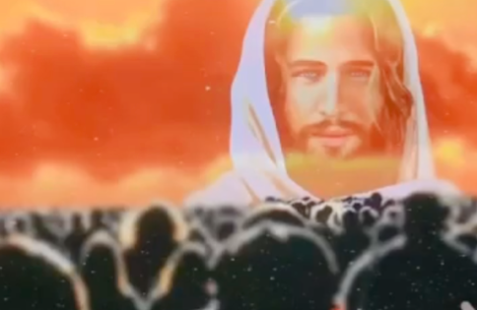Many parables of the Gospel contain an insistent call of Jesus to all men and women, to each one according to specific circumstances. Today the Lord speaks to us of a king who prepared a banquet to celebrate the wedding of his son, and sent his servants to call the guests1.
The image of the banquet was familiar to the Jewish people, for the Prophets had announced that Yahweh would prepare an extraordinary feast for all peoples when the Messiah would arrive: he would prepare for all a banquet of succulent delicacies, a banquet of the vintage, of lush delicacies, of wine without lees. This banquet signifies, in the first place, the fullness of good things that the Incarnation and Redemption would bring us, and the inestimable gift of the Holy Eucharist.
Jesus points out to us in the parable how we often respond to God's generosity with coldness and indifference: he sent his servants to call the guests, but they did not want to come. Jesus would recount this parable with regret, considering the many excuses he would receive over the centuries. The carefully prepared food remains on the table and the room remains empty, because Jesus does not coerce.
The king sent his servants again: Tell the guests, "Behold, I have prepared my banquet, my calves and fattened cattle have been slaughtered, and everything is ready; come to the wedding feast. But the guests did not pay the slightest attention: one went off to his fields, another to his business. Others not only refused the invitation: they revolted against him. So they laid hands on the king's servants, outraged them and put them to death. They reacted violently to Love's summons.
Jesus invites us to greater intimacy with him, to greater surrender and trust. And every day he calls us to come to the table he has prepared for us. He is the one who invites, and He Himself gives Himself as food, for this great banquet is also a figure of Communion.
Jesus himself is the food without which we cannot subsist, he is "the remedy of our daily need," without which our soul weakens and dies. Hidden under the accidents of the bread, Jesus waits for us every day so that we may approach him, full of love and gratitude, to receive him: the banquet is ready, he tells each one of us..., and many are absent, those who do not value the supreme good of the Holy Eucharist. They fail to respond to the Lord's call because of four trifles, because they do not appreciate the love of Christ in every Communion.
"Consider what great honor has been done you," St. John Chrysostom exhorts us, "what a table you enjoy. Whom the angels see with trembling, and because of the radiance He gives off they dare not look straight before them, with the same One we feed, with Him we mingle, and become one body and flesh of Christ."
Many are absent, and for this reason he also hopes that we will not be absent. He desires, with an intensity that we cannot even imagine, that we go to receive Him with much love and joy. And he sends us to call others: Go to the crossroads and call to the wedding feast as many as you find. He waits for many, and sends us so that with a kind, patient, effective apostolate, we may teach so many friends and acquaintances the immeasurable joy of having found Christ. Perhaps this is what they did with us: "Listen to where you were called from: from a crossroads. And what were you then? Lame and crippled in soul, which is much worse than being crippled in body". But the Lord had mercy and wanted to call us to his intimacy.
